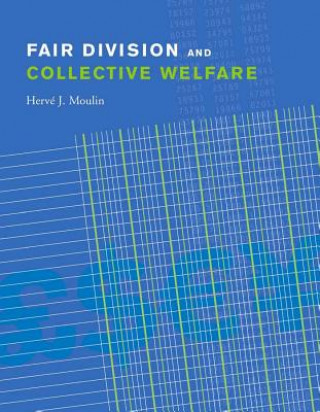
Code: 04397583
Fair Division and Collective Welfare
by Herve J. Moulin
The concept of fair division is as old as civil society itself. Aristotle's "equal treatment of equals" was the first step toward a formal definition of distributive fairness. The concept of collective welfare, more than two centu ... more
- Language:
 English
English - Binding: Paperback
- Number of pages: 296
Publisher: MIT Press Ltd, 2004
- More about this

You might also like
-

Roman Conquests: North Africa
93.25 zł -23 % -

Killing Room
37.80 zł -26 % -

One True Thing
74.90 zł -23 % -

Assertiveness Workbook
79.54 zł -23 % -

Learning and Development
152.94 zł -

Angel Time
74.90 zł -23 % -

Writing Students
194.18 zł
Give this book as a present today
- Order book and choose Gift Order.
- We will send you book gift voucher at once. You can give it out to anyone.
- Book will be send to donee, nothing more to care about.
More about Fair Division and Collective Welfare
You get 132 loyalty points
 Book synopsis
Book synopsis
The concept of fair division is as old as civil society itself. Aristotle's "equal treatment of equals" was the first step toward a formal definition of distributive fairness. The concept of collective welfare, more than two centuries old, is a pillar of modern economic analysis. Reflecting fifty years of research, this book examines the contribution of modern microeconomic thinking to distributive justice. Taking the modern axiomatic approach, it compares normative arguments of distributive justice and their relation to efficiency and collective welfare.The book begins with the epistemological status of the axiomatic approach and the four classic principles of distributive justice: compensation, reward, exogenous rights, and fitness. It then presents the simple ideas of equal gains, equal losses, and proportional gains and losses. The book discusses three cardinal interpretations of collective welfare: Bentham's "utilitarian" proposal to maximize the sum of individual utilities, the Nash product, and the egalitarian leximin ordering. It also discusses the two main ordinal definitions of collective welfare: the majority relation and the Borda scoring method.The Shapley value is the single most important contribution of game theory to distributive justice. A formula to divide jointly produced costs or benefits fairly, it is especially useful when the pattern of externalities renders useless the simple ideas of equality and proportionality. The book ends with two versatile methods for dividing commodities efficiently and fairly when only ordinal preferences matter: competitive equilibrium with equal incomes and egalitarian equivalence. The book contains a wealth of empirical examples and exercises.
 Book details
Book details
Book category Books in English Economics, finance, business & management Economics Economic systems & structures
226.74 zł
- Full title: Fair Division and Collective Welfare
- Author: Herve J. Moulin
- Language:
 English
English - Binding: Paperback
- Number of pages: 296
- EAN: 9780262633116
- ISBN: 0262633116
- ID: 04397583
- Publisher: MIT Press Ltd
- Weight: 456 g
- Dimensions: 226 × 173 × 14 mm
- Date of publishing: 20. August 2004
Trending among others
-

23 Things They Don't Tell You About Capitalism
51.91 zł -23 % -

Road to Serfdom
55.85 zł -9 % -

Mystery Of Capital
97.89 zł -

Planning for Freedom: Let the Market System Work
50 zł -9 % -
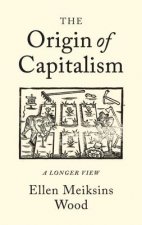
Origin of Capitalism
51.91 zł -9 % -

Capitalism in America
70.47 zł -23 % -

The Happiness Industry
58.57 zł -8 % -

Enigma of Capital
47.38 zł -23 % -
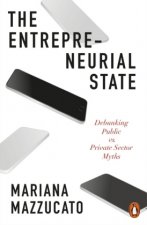
Entrepreneurial State
52.02 zł -23 % -

Connectography
47.08 zł -14 % -

Humankind
68.25 zł -23 % -

Capitalism
78.73 zł -4 % -
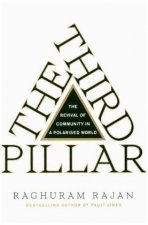
Third Pillar
138.82 zł -

Poland's Return to Capitalism
243.08 zł -

Coca-Cola
67.85 zł -15 % -

Cognitive Capitalism
132.47 zł -

Once Upon a Time in Russia
43.45 zł -15 % -
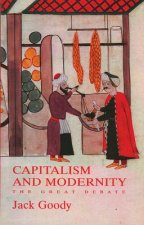
Capitalism and Modernity - The Great Debate
139.13 zł -
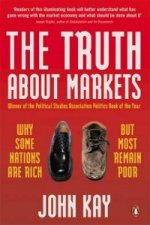
Truth About Markets
70.47 zł -23 % -
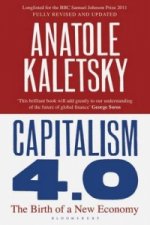
Capitalism 4.0
61.19 zł -23 % -

Neoliberalism
111.20 zł -

Economics for Everyone
137.31 zł -

New Capitalist Manifesto
109.49 zł -9 % -

From Gold to Euro
569.25 zł -

Cancer Stage of Capitalism
193.27 zł -
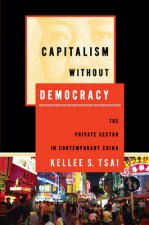
Capitalism without Democracy
182.79 zł -

Capitalism
161.51 zł -

EU General Data Protection Regulation (GDPR)
824.43 zł -
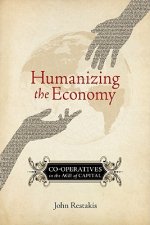
Humanizing the Economy
101.72 zł -4 % -

Brexit
69.05 zł -10 % -

Nowa Huta
281.59 zł -

Power of Capitalism
93.25 zł -23 % -

Guide to Marxian Political Economy
385.75 zł -

History of Capitalism
144.51 zł -

How Ukraine Became a Market Economy and Democracy
155.46 zł -

Civil Economy
121.69 zł -

Six Capitals, or Can Accountants Save the Planet - Rethinking Capitalism for the Twenty-First Century
100.21 zł -9 % -

Public Choice
69.05 zł -10 % -

Romania
387.66 zł -

Constructing a Market Economy
487.98 zł -9 % -
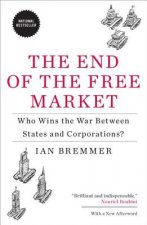
End Of The Free Market
102.23 zł -1 % -

State and the Economy Under Capitalism
1909.31 zł -

Science of Getting Rich
86.60 zł -

Planning for Freedom: Let the Market System Work
103.74 zł -

23 Things They Dont Tell You About Capitalism
52.52 zł -15 % -

Physical Asset Management
300.55 zł -

Rise and Fall of Czech Capitalism
588.50 zł -10 % -

Unaccountable & Ungovernable Corporation
838.95 zł -

Bonding
90.03 zł -5 %
safisfied customers
Since 2008, we have served long line of book lovers, but each of them was always on the first place.
Copyright! ©2008-24 libristo.pl All rights reservedPrivacyPoučení o cookies



 21 million books
21 million books Delivery 12.99 zł
Delivery 12.99 zł (32) 444 93 66 (8-15.30h)
(32) 444 93 66 (8-15.30h)